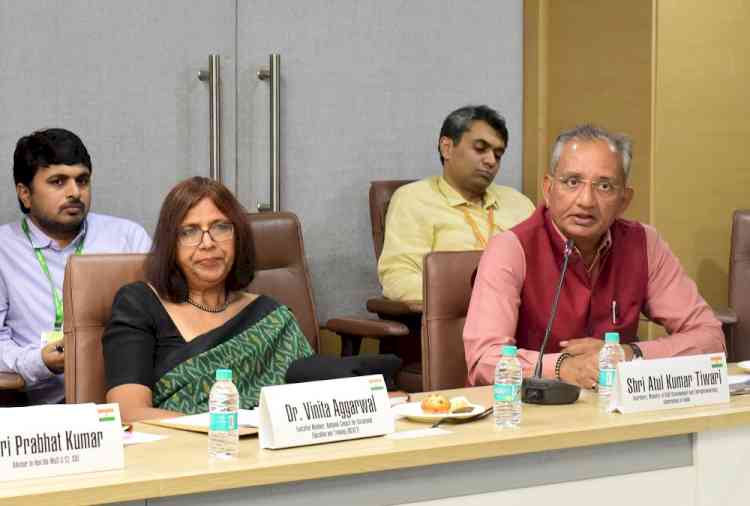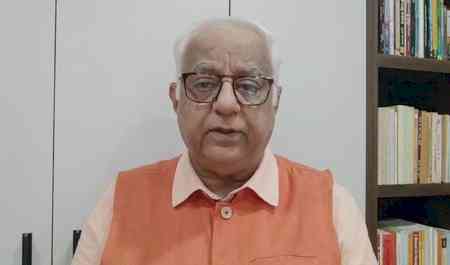Home-buying preferences change post Covid, witness new trends

The COVID-19 pandemic has fundamentally changed the world as we know it. People are living differently and, in many ways, thinking differently. Consumers across the globe are looking at products and brands through a new lens.
The appetite for residential property in the mid-income segment is growing, with people looking to move homes in the next 12 months because of the pandemic and subsequent lockdowns. Mumbai and Pune top the charts where people seemed more inclined to move to another city after the pandemic, according to the latest Knight Frank report.
Of the total respondents looking to buy in the Mainstream segment, 87% of respondents are looking to move within the city. In contrast, respondents from Mumbai and Pune are more inclined to move to another city post the pandemic. Around 26% of mainstream Indians had moved their residences within the pandemic period. One in five respondents are more inclined to move houses within the next 12 months globally, due to the pandemic, the report said.
One of the significant trends that has been observed in the recent months is that of homebuyers buying property near to their workplaces. Commenting on this trend, Mr. Himanshu Jain, VP - Sales, Marketing and CRM, Satellite Developers Pvt. Ltd. said "Owning a house near to the workplace is a dream for the homebuyers especially millennials due to the hustle of traffic. Therefore, many developers are coming up with projects in the regions that intend to reduce the office travelling to zilch. Nowadays, homebuyers prefer to stay in studio apartments or compact homes if it is in the vicinity of their respective workspace which also allows them to spend quality time with their family."
Developers have analysed the trend of a healthy lifestyle and have shifted their interests towards creating projects that fulfil the changing needs of new-age buyers in post-Covid times. Speaking about the same, Mr. Vedanshu Kedia, Director, Prescon Group said, “Covid-19 has changed the way homebuyers think now and the real estate sector was quick to respond to the changes and adjust to new advances in the past few months. Homebuyers are now looking for bigger, greener properties in urban communities with proximity to their workplaces. Healthy and energy-efficient homes are also gaining traction amongst the new-age buyers."
Reiterating the same Ms. Shraddha Kedia-Agarwal, Director, Transcon Developers said, "The new class of wealthy section of people is already on a buying spree of luxury homes in global cities like Mumbai, Bangalore, etc. These buyers are now preferring larger homes with proximity to airports, highways along with places of everyday utility such as well known hospitals, educational institutions, super-marts, parks, entertainment spots, recreational centres and so on."
The report also emphasises that the future of work would play a significant part not only for the commercial sector but also for the residential. As many as 32% of the respondents from the Mainstream Indian segment expressed willingness to move into a new home in the next 12 months as a result of the pandemic, whereas 14% from the Global Indian segment indicated a desire for relocation.
Outdoor space and the need for greater privacy have pushed homebuyers in the Global Indian segment to evaluate second home purchases in India, UK and the US, followed by Singapore and Australia, the report said. Commenting on this trend, Mr. Bhushan Nemlekar, Director, Sumit Woods said, "Post Covid, the enquiries for our project in Goa have increased by 40% and bookings by 15-20% as compared to pre-Covid era. People are looking for more get-away locations close to the metro cities for peaceful stays. There's more demand for ready-to-move-in projects over the under-construction ones. The demand for second homes will sustain in those locations wherever there is good social and medical infrastructure."
As India continues to take steps to curb the spread of the COVID-19 pandemic, there seems to be a huge shift in consumer preferences with a surge in demand for a healthy lifestyle and most importantly healthy homes and these changes will last well even after the situation improves.


 cityairnews
cityairnews 








